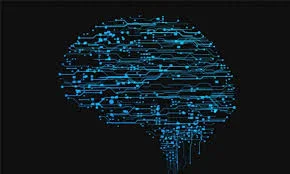We are not our brainwaves
March 24, 2010
ON A radio documentary the other day about the growing use of MRI technology to detect whether someone was lying or not, the philosopher and physician Raymond Tallis was one of the few voices who pointed out that thoughts cannot simply be reduced to simple brain-wave patterns. He suggested there was no meaningful equivalence between what you see on a scanner and what the subject is really thinking. You can reduce a person’s thoughts to brain activity and perhaps – in extreme cases – ascertain the presence of some traumatic injury that has impaired his personality, but you cannot accurately convert that brain activity back into the specific words and images and memories that are flowing in the subject’s mind.
The eternal question is this: what is the relationship between the inside and the outside, between the hardware and the software, between brain and language?
The old pioneering psychologists used to think that words didn't matter. They roamed Bedlam and said the babbling of their brutalised patients was merely a symptom of an underlying physical condition and should not therefore be considered in its own right. Freud disagreed, but the ironic thing about the Freudian “talking cure” – which sought to deal with psychological issues on their own terms – is that Freud himself believed that there was a sort of built-in obsolescence to psychotherapy and that it could ultimately be reduced to mere chemistry.
Going further than Freud ever dared to go, R.D. Laing used his gestalt approach to suggest that the madman needed to be communicated with on his own terms, that the solution to madness was rooted in the madness itself. That way of thinking – both Freud and Laing - has now been discredited, and we seem to be back to the idea that speech is nothing more than an epiphenomenon of some underlying condition. Bad ideas and bad chemicals, as Vonnegut put it: neither can be reduced to the other, but if you have both, you are finished. Terrible theories can infiltrate even the healthiest minds, but unhealthy minds can cause damage even with the most humane ideas.
Tallis’s view is that there is no direct "isomorphism" between the extraneous superstructure of culture and language and the “intraneous” world of the brain. I would go along with that, but perhaps it is wishful thinking. In this week’s episode of House, the eponymous diagnostician digs out a piece of experimental technology that somehow allows him to read the thoughts of his patient. A monitor seems to convert the brain wave patterns into images of her boyfriend’s father, allowing House to produce the inevitable epiphany that she was suffering from a sexually-transmitted disease that the father had passed on to her, saving her life and disgracing the father in one easy move.
It seemed utterly preposterous, a third-degree impossibility as Michio Kaku would put it. And yet, on the other hand, I have seen experiments in which brain scans can actually determine very accurately whether or not a person is lying, so why does it seem so implausible that a machine will eventually be designed to convert the biochemical feedstock that makes up a person’s private thoughts into a meaningful language that can be accurately recorded and interpreted and shown on computer screens?
First of all, there is no reliable metric. Put it this way: there are several thousand languages in this world, all with their own lives and frames of reference, all drawing on centuries of culture. Why would there be a biochemical equivalent of the complicated and untranslatable collection of feelings known in Czech as litost, described so admirably by Milan Kundera? How could even the perfect neurological and endocrinological measurements ascertain that the subject was currently in a state of Schadenfreude. How could it differentiate between a wanker and a cunt and a twat if it were scanning the brain of a British football hooligan? You cannot reduce biology to language, and so you cannot reduce ideas to brain chemicals.
In this, I agree with Tallis, and understand why Counsellor Troi, the tedious and sententious mind-reading character in Star Trek: The Next Generation, can only deal with vague emotions – “I sense great anxiety, Captain” – rather than specific (and specifically linguistic) desires – “I sense a desire on the part of Commander Worf to spray-paint your forehead with Nazi symbols, Captain”. If there is no isomorphism between our language and our thoughts, how could there possibly be an isomorphism between our language and our brain-waves?
The problem with the majority of science fiction stories, it occurs to me, is that they are so preoccupied with getting the scientific extrapolations right that they don’t stop to think about the human failings that will inevitably persist even several centuries from now. I’m not just talking about the utopianism of Star Trek. Even the dystopias presuppose some perfect villain – an omnipotent corporation or regime or scientist - executing a scientific strategy to serve his own nefarious purposes. They don’t quite manage to express the chance and opportunism and unpredictability of all human development – and that is understandable, since the majority of science fiction is mere extrapolation of current scientific ideas.
Tallis said that thoughts aren’t merely the sum of their physical manifestations, and that seems right to me, and they can never be entirely internal because they are derived from a vast superstructure, a massive extended phenotype of language and culture and history. Is there such a thing as a private language, asked Wittgenstein. Doesn’t the language speaks the man, rather than the other way around, said Heidegger. Biology has created the hardware, but the software – the centuries of books and songs and love affairs and wars, the random memetic kludge accumulated over several millennia – cannot be reduced to simple human evolution. Genes gave us the power to think, but they didn’t give us our desire for Branston Pickle or Radiohead or the novels of Martin Amis. You cannot identify the qualia within the neurons and synapses.





